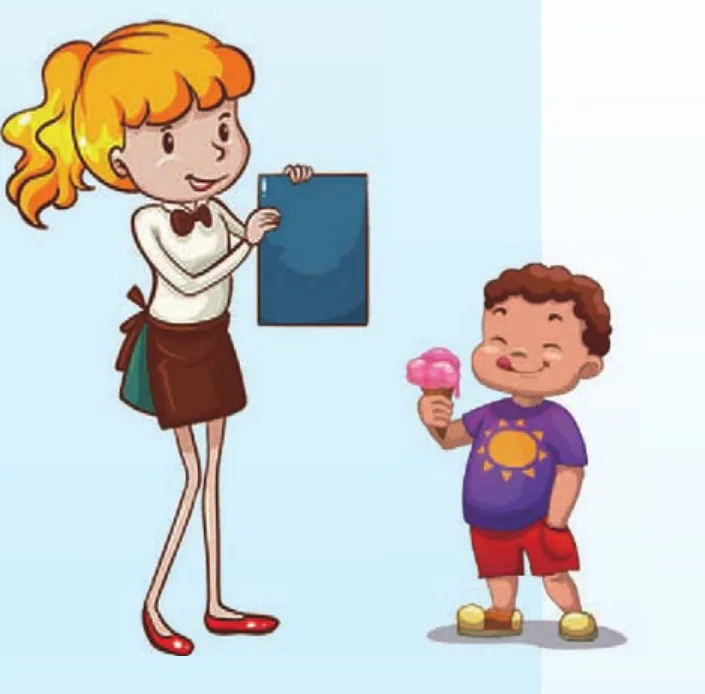A Cheap Meal
◎供稿:郭昊刚

A man went into a restaurant and sat down at one of the tables.
A waiter went up to him and gave him the menu.
The man read it carefully,then ordered all the most expensive dishes.
The waiter served the meal and the man ate it with great
1)enjoyment.
Then a small boy came into the restaurant and sat at the man’s table.
The waiter came up and said to the man, “What would your little boy like, sir?”
“Oh, just an ice cream,” the man told him. Then he stood up and said to the waiter, “I am just going out to buy a newspaper.”
He left the restaurant. The waiter gave the boy an ice cream. The boy ate it, and then stood up and walked to the door.
The waiter ran towards him.
“Excuse me,” he said, “but your father hasn’t come back and he hasn’t paid for his meal or for your ice cream.”
“I’m sorry,” the young boy said, “That has nothing to do with me.”
“Oh, yes it does,” the waiter said, “You will stay here until your father comes back and pays his bill.”
“He’s not my father,” the boy said, “I don’t know who he is.”
The waiter did not understand. “What do you mean?” he asked.
“The man came up to me in the street,” the boy said, “He asked me if I liked ice cream. I told him I did. Then he told me to come into the restaurant at 14 o’clock and sit down at his table. He said he’d give me some.”
参考译文
一个男人走进了一家饭馆,坐在了其中一张桌子前,服务员走上前给他看菜单。
这位男士看得很仔细,然后按顺序看了所有最贵的菜。服务员为他提供了这些菜,这个男人吃得很香。
然后一个小男孩走进饭馆坐在了这个男人的桌前。
这位服务员走过来对男人说:“你的小孩喜欢什么呢,先生?”
“噢,一个冰激凌。”男人告诉他,然后他站起来对服务员说:“我要出去买一份报纸。”
他离开了饭馆。服务员给了小男孩一个冰激凌,这个男孩吃了它,然后站起来向门口走。
服务员赶上了他。
“不好意思。”服务员说,“你的爸爸还没有回来付这餐饭和冰激凌的。”
“对不起,”小男孩说,“但这和我无关呀!”
“噢,当然有关,”服务员说,“你要在这等你爸爸,直到他从银行回来付完钱。”
“他不是我的爸爸,”男孩说,“我不知道他是谁。”
服务员不明白,“你是什么意思?”他问。
“这个男人在街上找到我。”男孩说,“他问我喜不喜欢冰激凌,我说我喜欢,然后他告诉我14点来这个饭馆,坐在他的桌前,他说他会给我一些冰激凌。”

语法
go/come up to Someone
故事中,went up to him和came up to me都有approach(走近)的意思。此种用法在英语中很常见。如:A man came up to me yesterday and asked me for money.

